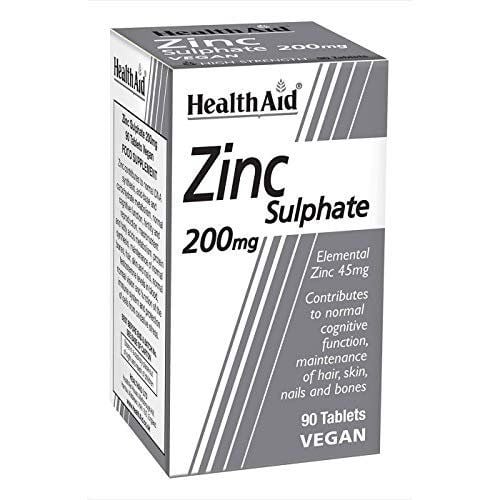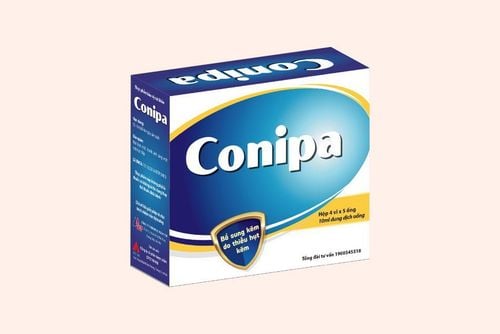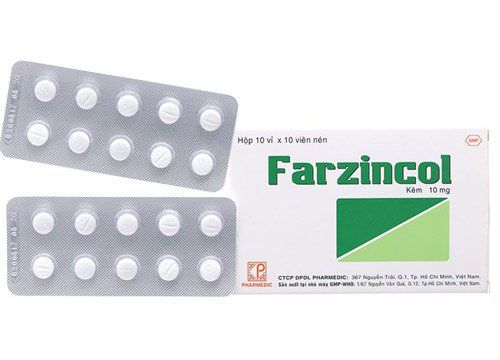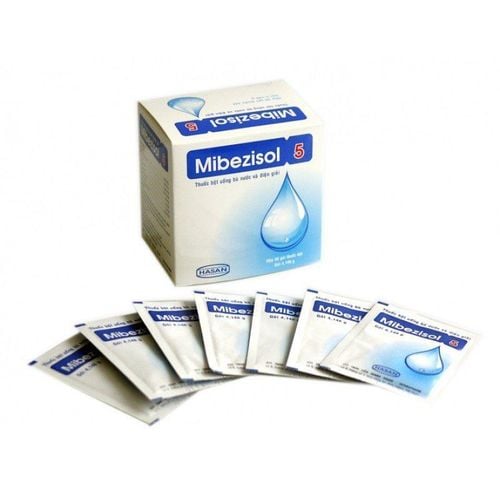This is an automatically translated article.
The article is professionally consulted by Master, Doctor Phan Ngoc Hai - Pediatrician - Neonatologist - Vinmec Danang International General HospitalZinc is an important trace mineral, involved in protein metabolism and enzyme formation in the body. In particular, zinc also has a certain role in the growth and development of height in children from 1 to 8 years old. Therefore, zinc supplementation for children in this age group is essential.
1. Effect of zinc intake on children's growth
Zinc deficiency is increasingly recognized as an important public health problem. It is estimated that low zinc diets and consequent zinc deficiency affect about 17% of the world's population, especially children.Zinc deficiency is particularly common in Southeast Asia, sub-Saharan Africa and Latin America. In addition, frequent clinical infections such as diarrhea have also been implicated in the influence of zinc absorption.
Children are very susceptible to zinc deficiency due to increased zinc requirements during the period of rapid growth. Zinc deficiency can impair growth in children, which in turn contributes to stunting. According to estimates by experts, about 167 million children in developing countries suffer from stunting and stunting is still a significant public health problem today.
In general, children of different ages will have nutritional needs as well as zinc intake corresponding to changes in growth rate. Growth in infants during the first years of life is particularly rapid, with birth weight doubling and body length increasing by 50%. Nerve growth in children can reach 30cm/year in the first 2 months of life, decreases to 1/3 of this rate after 10 months, and continues to decrease sharply until the child is 2-3 years old. After 2 years of age, growth in children and their rate of weight gain also tend to slow down, tapering off and reaching lower levels just before the onset of puberty.

Thiếu kẽm có thể làm giảm sự tăng trưởng ở trẻ, từ đó góp phần gây ra tình trạng thấp còi
2. The effect of zinc supplementation for children from 1 to 8 years old
Zinc supplementation may have positive effects on growth in children aged 1 to 8 years. Zinc deficiency makes the sensitivity of taste reduced or lost completely, causing anorexia, loss of appetite and can cause some diseases such as inflammation of the oral mucosa. Zinc also helps synthesize and secrete growth hormone to enhance immunity and fight infections.
Health care experts also said that zinc supplementation for children with stunting (underdeveloped height) can bring about significant restorative effects on growth rate as well. height and weight, while helping to increase the levels of the hormone IGF-1 (essential growth factor of the body). Furthermore, infants who were born with a low birth weight for their gestational age when supplemented with zinc increased their height, and also showed positive signs of growth and weight within the first 6 months of life.
In general, in order to achieve the optimal height for babies, mothers from the time of pregnancy until the application of postpartum nutrition should focus on adequate zinc supplementation.
Not only affects the physical body, inadequate zinc supplementation for children can cause mental problems, making the baby irritable and aggressive. The cause of this condition is that zinc keeps the function of transporting calcium to the brain, while calcium is an extremely necessary substance to help stabilize nerves. Therefore, when a child has a zinc deficiency, it will interfere with the body's calcium transport process.
Below is the need for zinc supplementation for each child's developmental age, including:
Children from 7 to 3 years old: Add 5 mg/day; Children from 4 to 13 years old: Add 10 mg/day; Under the most standard conditions, a child's body is only able to absorb about 30% of zinc. The rest will be passed out through pancreatic juice, intestinal fluid, sweat and urine. Therefore, parents need to pay attention to providing enough zinc for children through daily diet to ensure the best growth in children.
3. The "golden" time to supplement zinc for children
Daily zinc intake is considered an important factor to help maintain a healthy level of the child's body, so if your baby has signs or is at risk of zinc deficiency, parents need to quickly supplement. supplement with this trace mineral.
In order to help the child's body absorb zinc best, you should give your baby zinc supplements about 30 minutes after a meal. The duration of zinc supplementation for children can last from 2 to 3 months and then stop. While taking zinc, your baby may also need to supplement with vitamins A, B6 or C – these are all nutrients that help increase zinc absorption.

Thời gian bổ sung kẽm cho trẻ có thể kéo dài từ 2 – 3 tháng và sau đó ngừng lại
4. Food sources to help supplement zinc for children from 1 to 8 years old
Parents can supplement zinc for children from 1 to 8 years old through zinc-rich foods such as oysters, beef, oysters, chicken, lamb, milk, lean pork, shrimp, fish, crab, ca cocoa, wheat germ, chocolate, pumpkin seeds, cashews, almonds, green tea leaves, apples, beans or mushrooms.
Besides foods that provide zinc, you can also give your child zinc supplements to increase height instead of using western medicine. For infants as well as young children, mothers should breastfeed their babies for at least the first 6 months of life, because breast milk is considered a very good source of zinc for babies, moreover, it is very easily absorbed.
It is necessary to supplement zinc daily for children depending on their age to eat well, reach the correct height and weight and exceed the standard. Zinc plays a role in affecting most biological processes taking place in the body, especially the breakdown of nucleic acids, proteins... Organs in the body when zinc deficiency can lead to a There are a number of diseases such as neurological disorders, irritability, etc. Therefore, parents need to learn about the role of zinc and guide them to appropriate zinc supplements for their children.
In addition to zinc, parents also need to supplement their children with other important vitamins and minerals such as lysine, chromium, B vitamins,... errands.
Please regularly visit Vinmec.com website and update useful information to take care of your baby and family.
Reference source: nature.com














